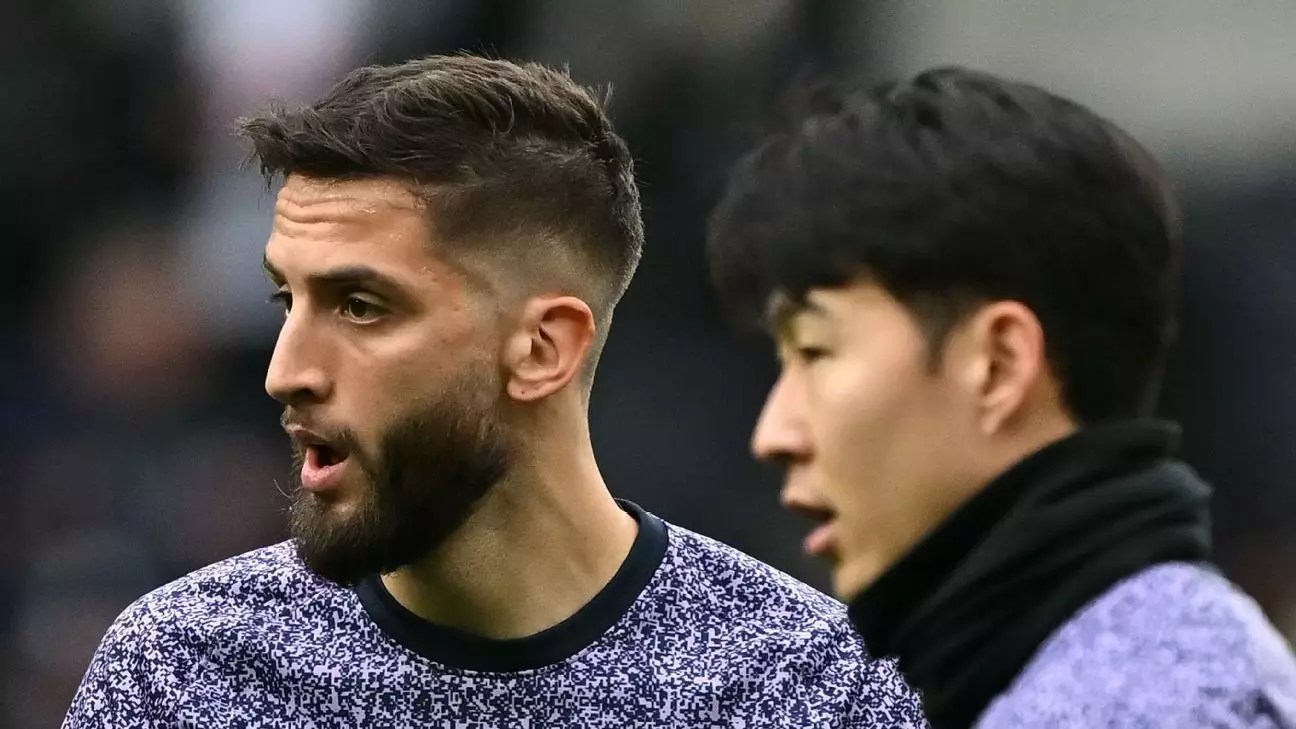In a recent episode that has sparked considerable debate in the football community, Tottenham Hotspur midfielder Rodrigo Bentancur found himself at the center of a controversy following comments made during an interview in Uruguay. The conversation, which aired on the television program “Por La Camiseta,” took a questionable turn when host Rafa Cotelo asked Bentancur if he could acquire the shirt of teammate Son Heung-Min. Bentancur’s response, suggesting that it could be Son’s cousin as they all “look the same,” quickly raised eyebrows and led to an investigation by the Football Association (FA).
Following the incident, the FA imposed a seven-game suspension coupled with a £100,000 fine, framing the comments as racist. Given the undeniable sensitivity surrounding issues of race and representation within football, the swift reaction from the FA reflects a broader attempt to uphold the integrity of the sport. While Bentancur immediately issued an apology, affirming the strong bond he shares with Son, the severity of the repercussions highlights the complexities involved in managing language and culture in a multicultural environment.
Ange Postecoglou, the Tottenham manager, has taken a unique stance regarding this incident and its consequences. He emphasized the importance of allowing Bentancur the opportunity to learn from his mistakes rather than being hastily judged. In Postecoglou’s view, the football community should focus on education and growth rather than punishment. His comments reflect a broader societal dilemma: when someone makes a mistake, how do we ensure they have the space to grow rather than an immediate label that defines them?
The notion of educational consequences is particularly pertinent in our current climate, where accountability is paramount. Postecoglou pointedly remarked that while Bentancur’s mistake was serious, it shouldn’t overshadow the potential for personal growth. He recounted his own experiences with making errors, suggesting that everyone deserves the chance to learn from their missteps. This perspective may resonate well with supporters who appreciate a more forgiving approach, as opposed to a punitive one that lacks the potential for positive transformation.
Tottenham accepted the FA’s finding but deemed the punishment unduly harsh; thus, they opted to appeal the decision. The club believes that the seven-game ban exceeds what is necessary, as FA regulations indicate a minimum six-game penalty for such offenses. Postecoglou’s assertion that the appeal is a “right” affirms the importance of a just process where the errors of individuals can be considered thoughtfully rather than through a purely punitive lens.
Notably, Postecoglou maintained that the pursuit of fairness is not about diminishing the seriousness of Bentancur’s comments but rather advocating for a reasonable assessment given the context. The discussion around the appropriate level of punishment is crucial, especially as it pertains to maintaining a balanced approach in a sport that must grapple with evolving social norms.
As it currently stands, Bentancur’s suspension means that he will miss a significant number of domestic fixtures, including potentially critical games against formidable opponents like Liverpool. The situation could have long-lasting implications not only for the player but for the team dynamics as well, especially with other absences due to injuries. Cristian Romero and Micky van de Ven, both key defenders, also find themselves unavailable, adding pressure on Spurs’ overall squad depth.
Despite the uncertainties, Postecoglou’s commitment to standing by his player throughout this ordeal speaks volumes about the kind of environment he is fostering at Tottenham. It reveals an understanding that the path to social responsibility in sports is one where education and rehabilitation take precedence over retribution.
The case of Rodrigo Bentancur serves as a potent reminder of the nuances involved in athlete conduct and the responsibilities that come with public life. Balancing accountability with learning opportunities remains a pivotal challenge for football clubs, governing bodies, and society at large. As the appeal process unfolds, the hope remains that this incident will lead to meaningful dialogue and, ultimately, positive change in the football community.


Leave a Reply